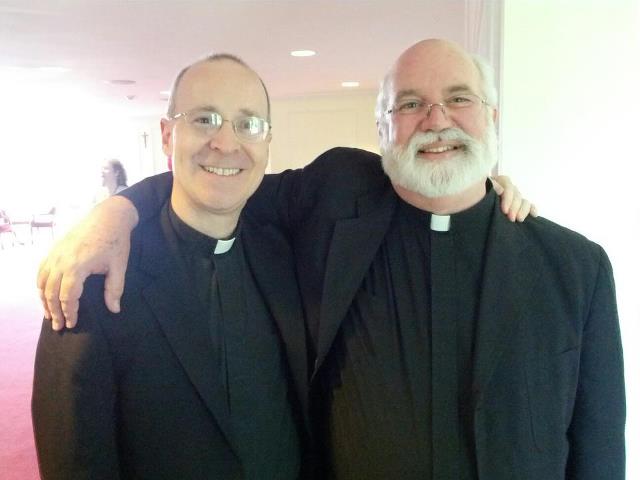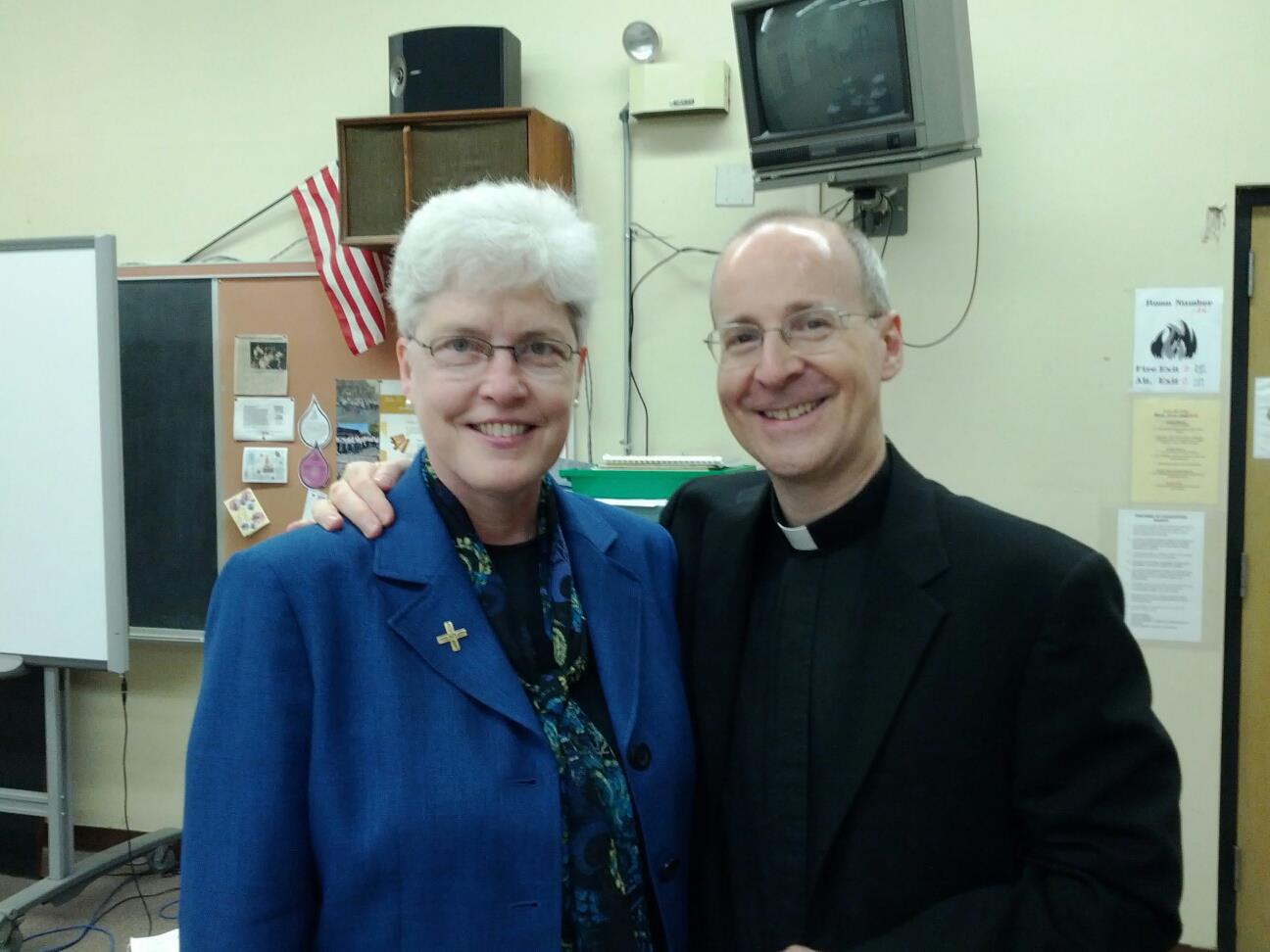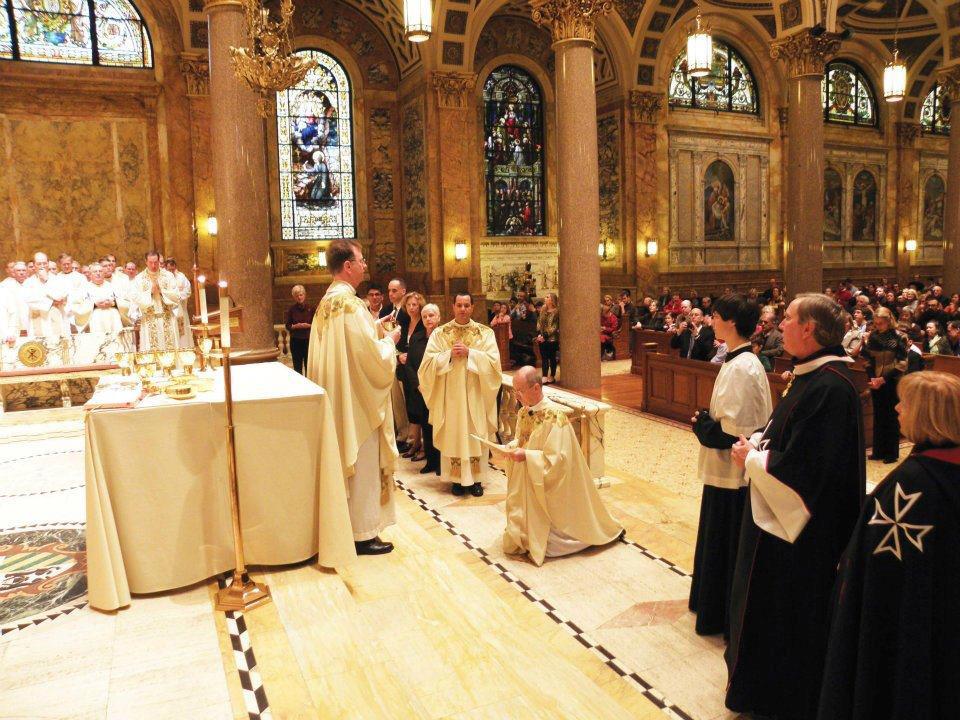How I see the vows: then and now

Poverty hadn’t presented much of a problem for me as a novice. Though I had earned a good salary while I was working at General Electric, the money itself had never been a big deal. My only extravagances had been a few short vacations in Europe. Other than that, I socked all my money away. So I thought that giving it up would be easy.
And part of it was easy. No checking account, no credit cards, no car payments, no rent, no worrying about which job would lead to making the most money, no wondering if your salary was as high as it should be or as high as the next person’s. Ridding myself of those worries was wonderfully freeing, as it was meant to be. Overall, living simply suited me fine.
But there are real sacrifices on a budget of $70 a month. Often it seemed that my monthly budget was consumed entirely by toiletries and long-distance phone calls. (I started shaving every other day just to save on shaving cream.) And I was totally dependent on the Jesuits for my financial needs. De jure, I owned nothing. De facto (as well as de jure, come to think of it), I had precious little money to “do” things. Anything I needed or wanted I had to ask for, and I had to be prepared that the answer might be no.
My work had also taken me to places where luxurious living was either impossible or scandalous to the people with whom we worked. A homeless shelter in Boston. A slum in Kingston, Jamaica. The Lower East Side of New York. It is difficult to feel you deserve or even need many things in the face of the standard of living around you. I couldn’t return to my Jesuit community in Kingston after having worked with orphaned boys who literally had nothing, and complain about the food. Or rather if I did, I felt a pang of guilt.
Still, as a novice, I occasionally found it difficult to reconcile what I understood as poverty and the way that we sometimes lived it. I still clung to a perhaps overly legalistic notion of poverty as absolute. But while Jesuit poverty is certainly a poverty of simplicity and detachment, of using only what we needed, it is not a poverty of utter destitution.
And despite my exacting standards and tendency to judge others, I realize that I can’t live in grinding poverty. When I lived in Kingston, our little group of Jesuit scholastics had dinner with a group of Canadian Jesuits living in a neighborhood slum. Of course, I was living in a slum as well. The difference was that they were living in a tiny home similar to those of the people around them, with limited physical space, poor plumbing, and only intermittent electricity. On the other hand, I was living in a large, secure compound surrounded by barbed wire, with more than occasional hot water and someone to cook my meals to boot. Their manner of living, I thought, was more authentic, and I was strongly attracted to it. But I knew I couldn’t live that way—at least not yet.
The poverty of being human
There is also a deeper type of poverty that people in religious life face as well—a spiritual poverty that everyone faces at some point. The poverty of being simply human, prone to failure, to sickness, to hunger, to disappointment. The inability to heal people or “do” something in a hospital, the knowledge that no matter how many hours I spent tutoring in Kingston, the boys in the orphanage were probably destined to a life of poverty. The understanding that the same men and women I met at the homeless shelter would probably remain homeless. And knowing that no matter how much time we spent with the boys at the Nativity School in New York, some of the boys would undoubtedly face lives of struggle and hardship. Without faith, I think, this type of realization can lead to despair. It is this type of poverty that forces you to rely on God.
But the years in the novitiate helped me to see that accepting these poverties can be profoundly freeing. Accepting that everything comes from God frees you from the myth of self-reliance and independence. Ultimately, you give up trying to solve everyone’s problems on your own. Not ameliorate, but solve. As long as you rely simply on yourself, you are doomed to despair. But surrendering yourself to spiritual poverty—the poverty of your own limitations—frees you from this despair and makes your ministry more fruitful by allowing God to work through you more effectively. In short, you move from despair to hope.
What we do with love
The second vow—chastity—was always more difficult. Sex is great. It is certainly a challenge to abstain from sex, and from physical intimacy. But more difficult than the lack of physical intimacy is not having one person to whom you can turn for support—the “exclusive relationship,” as it’s known in religious parlance. Sometimes I felt a twinge of envy and regret when I saw two people walking arm in arm, knowing that my life did not include that.
But there is freedom here, too. A Jesuit friend once told me, “I couldn’t marry just one person—I’ve fallen in love so many times with so many people, I’d have to marry hundreds of people.” That’s not exactly the way I look at it, but he was expressing the fundamental goal of chastity—which, of course, is love. And even chastity does not preclude one from falling in love. I’ve fallen in love plenty times since becoming a Jesuit. It’s natural and, as David was constantly reminding me in spiritual direction, if you didn’t fall in love there would probably be something wrong with you. Falling in love and being in love are both gifts from God. It’s a question of what you do when you fall in love as a celibate. Do you deny or repress the feelings and become twisted and frustrated, or do you try to integrate them into your chaste life?
A chaste person tries, like Jesus did, to love as many people as possible. Some cynics say that loving everyone means you love no one. And I suppose that sometimes this is one danger of the celibate life. In a “Peanuts” comic strip, Charlie Brown says to Linus that he could never become a doctor because Linus didn’t love mankind. “I love mankind,” says Linus, “It’s people I can’t stand!”
On a practical level, though, I know that I have more energy and time for others when I am living chastely—to pay attention, to listen, to be intimate—than I would if I were in an exclusive relationship. This doesn’t mean that chastity is meant for everyone, or that it’s somehow “better” than being single or being married. It’s not. Chastity is simply another way of loving that works for some people. Like married people, I don’t always live out my vows perfectly and, sometimes, I make a complete mess of things. But when it works, it’s wonderful. It’s liberating and enables me to experience God’s love and grace.
Where obedience takes me
Obedience always seemed, at least as a novice, to be the easiest of the three vows. After all, I used to take orders at GE and never thought twice about it. It amazes me that some people who are willing to work 15-hour days and uproot themselves and their families to move across the country for a corporation can’t understand how anyone could take a vow of obedience. “How can you let someone tell you what to do?” As if a law firm or bank or university doesn’t do exactly the same thing—and often with far less input.

Joe, the spiritual director who lived at the novitiate, told me that every year on July 31, the provincial’s status would be released, which announced the Jesuit assignments for the next year. One year, after Joe had finished his philosophy studies—this must have been in the late 1950s—the annual status was posted and listed him as teaching chemistry at the Cranwell School, one of the old Jesuit prep schools in western Massachusetts.
“I went to the provincial,” he told me, “thinking there must have been a mistake. Not only had I never taught chemistry, I had never even studied it in school!
“But the provincial told me that there was no mistake,” said Joe. “They needed a chemistry teacher.”
“So what did you do?” I asked, astonished.
“Ha!” he laughed. “I taught chemistry for three years! And you know what? I got pretty good at it, too!”
This type of obedience also means that Jesuits, like many other religious, must shift from job to job over their careers, depending on the needs of the Society of Jesus and, more broadly, the church. But for every Jesuit who has held a dozen different jobs in his career and has bounced around like a ping-pong ball from community to community, there is another Jesuit who has stayed planted resolutely in one place and in one ministry.
More recently, obedience reflects a different kind of decision making, where the desires of both the Jesuit and his superior are seen as important. So it’s not usually a question of being dragged off kicking and screaming to teach chemistry somewhere. Often, an equally difficult obedience is the simple obedience of daily work, of being true to what you are sent to do, whether it’s teaching, working, studying, or praying in one’s old age, and realizing that, although you might find it hard to believe, this is God’s will for you. Or at least as near to God’s will as you and your superiors are able to discern. Ultimately, those in religious life believe that through prayer and conversation between you and your superior, God’s will can be accomplished.
When I was teaching at the Nativity School and wondering whether my job was as important as the people who taught full time, I had to remind myself that I was there under obedience. When I was bored or felt useless as a chaplain at Youville Hospital, I had to remind myself about obedience. When I wanted somehow to avoid washing the old men at the hospice in Kingston, Jamaica, (which was every day), obedience certainly wasn’t the only thing that kept me there, but it certainly helped to keep me from entertaining thoughts about quitting. And, looking back, I was happy I stayed in each case.
This first section was excerpted in condensed form, with permission, from Martin’s In Good Company: The Fast Track from the Corporate World to Poverty, Chastity, and Obedience (Sheed and Ward, 2000).
Twelve years later
Although In Good Company was published in 2000, the bulk of the story was actually written several years prior to that. In 1992, while working with the Jesuit Refugee Service in East Africa, I contracted a rather nasty case of mononucleosis and, consequently, found myself with unforeseen free time. It was during those weeks of recuperation that I began to write the story of my entrance into religious life.
 Thus, a few years have passed since I first put pen to paper, or rather, put my fingers to the keyboard. And perhaps not surprisingly, if I were to write about my understanding of the vows today, I think that it would be in a slightly different way. The way I think about my vocation today can be expressed rather succinctly: my vocation is the way that I love God, and is the way that God loves me. Living a life of poverty, chastity, and obedience is, I am convinced, the way that enables me most fully to experience the love of God in my life, and that enables me most fully to express my love for God. I’ve come to this realization not only through years of prayer and spiritual direction, but also—and perhaps more important—through my daily life as a Jesuit.
Thus, a few years have passed since I first put pen to paper, or rather, put my fingers to the keyboard. And perhaps not surprisingly, if I were to write about my understanding of the vows today, I think that it would be in a slightly different way. The way I think about my vocation today can be expressed rather succinctly: my vocation is the way that I love God, and is the way that God loves me. Living a life of poverty, chastity, and obedience is, I am convinced, the way that enables me most fully to experience the love of God in my life, and that enables me most fully to express my love for God. I’ve come to this realization not only through years of prayer and spiritual direction, but also—and perhaps more important—through my daily life as a Jesuit.
 Thus, a few years have passed since I first put pen to paper, or rather, put my fingers to the keyboard. And perhaps not surprisingly, if I were to write about my understanding of the vows today, I think that it would be in a slightly different way. The way I think about my vocation today can be expressed rather succinctly: my vocation is the way that I love God, and is the way that God loves me. Living a life of poverty, chastity, and obedience is, I am convinced, the way that enables me most fully to experience the love of God in my life, and that enables me most fully to express my love for God. I’ve come to this realization not only through years of prayer and spiritual direction, but also—and perhaps more important—through my daily life as a Jesuit.
Thus, a few years have passed since I first put pen to paper, or rather, put my fingers to the keyboard. And perhaps not surprisingly, if I were to write about my understanding of the vows today, I think that it would be in a slightly different way. The way I think about my vocation today can be expressed rather succinctly: my vocation is the way that I love God, and is the way that God loves me. Living a life of poverty, chastity, and obedience is, I am convinced, the way that enables me most fully to experience the love of God in my life, and that enables me most fully to express my love for God. I’ve come to this realization not only through years of prayer and spiritual direction, but also—and perhaps more important—through my daily life as a Jesuit.I’m more certain than ever that God wants me to live a life of chastity. Through the grace of God, I am fortunate to have many close friends—Jesuits, priests, brothers, sisters, and laypersons—who offer me an enormous amount of love and affection. And my experience teaches me simply that I am happier with a wide circle of friends than I am in a relationship with a single person. Time and again I am reminded that God communicates love to me through my friends, family, and brother Jesuits. So my surety in my vow of chastity has grown with more experience. The more I live chastely, the clearer it becomes that this is how God wishes me to experience happiness and love.
It’s the same with poverty and obedience. I am happiest when I am living simply; I feel freer and more alive. And when I’m living according to what I believe is God’s will for me, as expressed by my religious community, and working where I believe God wishes me to work, I feel a profound sense of peace and joy.
So what has changed since I first began writing In Good Company? Simply put, I’ve had more experience—and this experience continues to confirm and deepen my sense of vocation. The vowed life, as we call it in the industry, may not be for everyone. But by reflecting on my experiences over the past 12 years as a Jesuit, I’m more confident than ever that it’s definitely for me.
Tags
Related
- We’re different—in a good way: Profile of Father Roberto Mejia, O.Carm.
- Man with a mission
- Monastic life is habit-forming
- Ministering to migrants in a carport cathedral
- Connections make the man: Profile of Father Kevin Zubel, C.Ss.R.
- A priest (who’s been there) responds to the pain of addiction
- In search of healing, one story at a time
- A dream rekindled: Profile of Father Luis Romero, C.M.
- Secrets to being a happy priest
- Ed's story: Lose a dream, find a life Read More
Most Viewed
- Find your spirituality type quiz
- FAQs: Frequently asked questions about vocations
- Celibacy quiz: Can you live a celibate life?
- Resources for older discerners or those with physical and developmental differences
- About Vocation Network and VISION Guide


